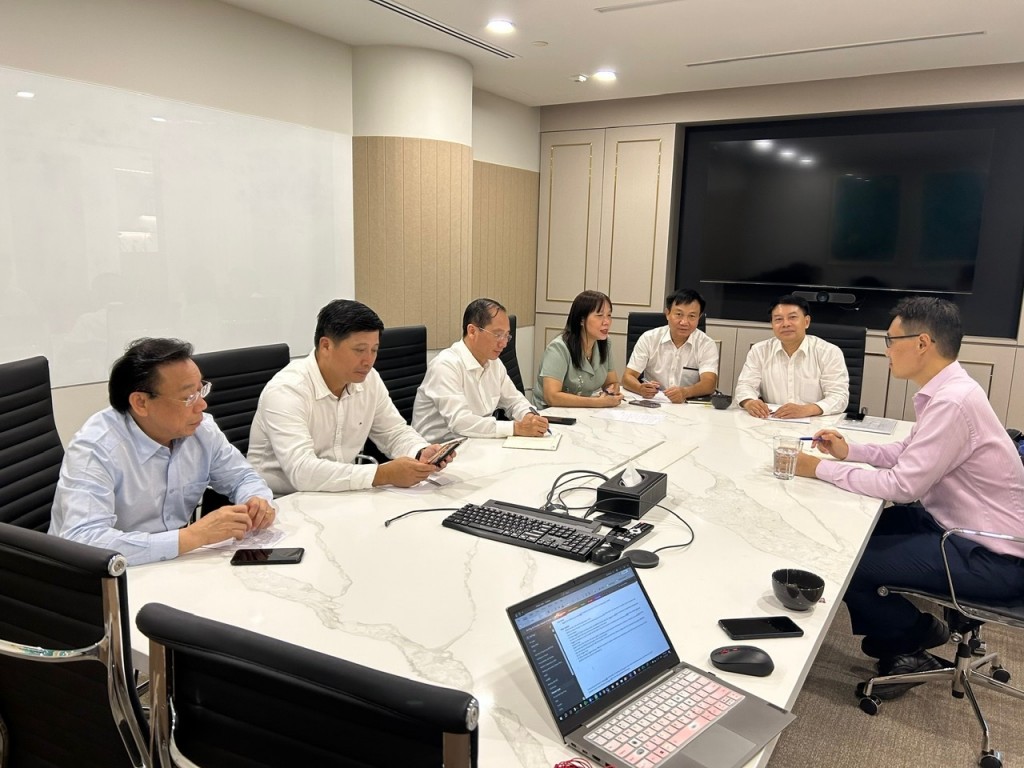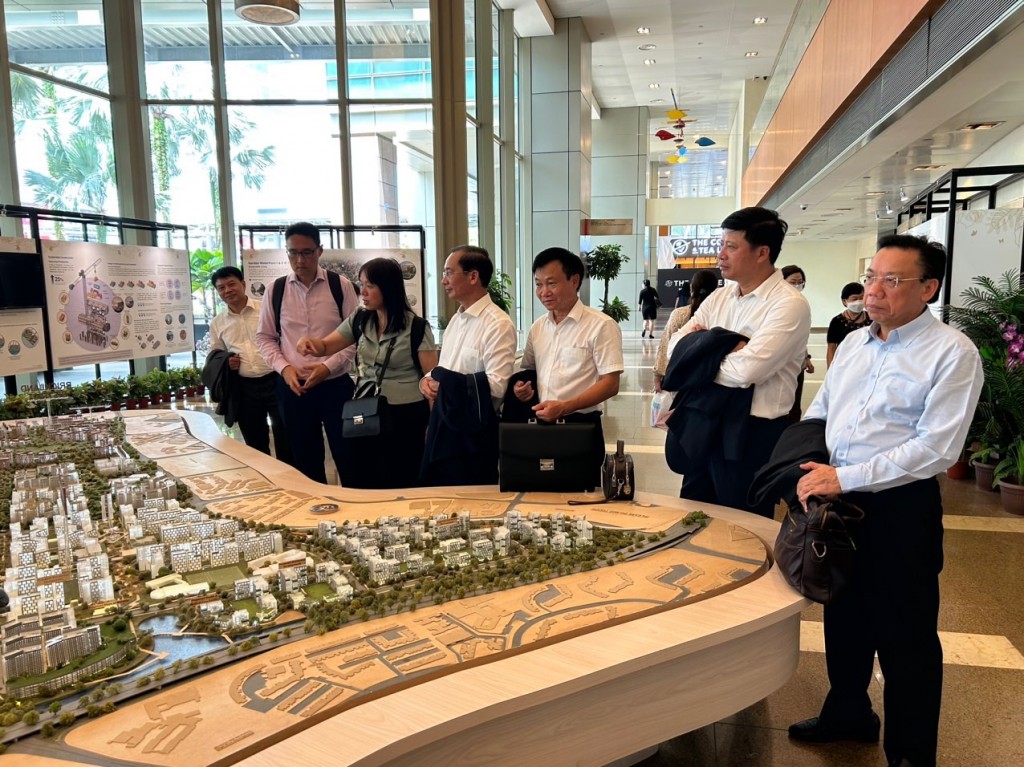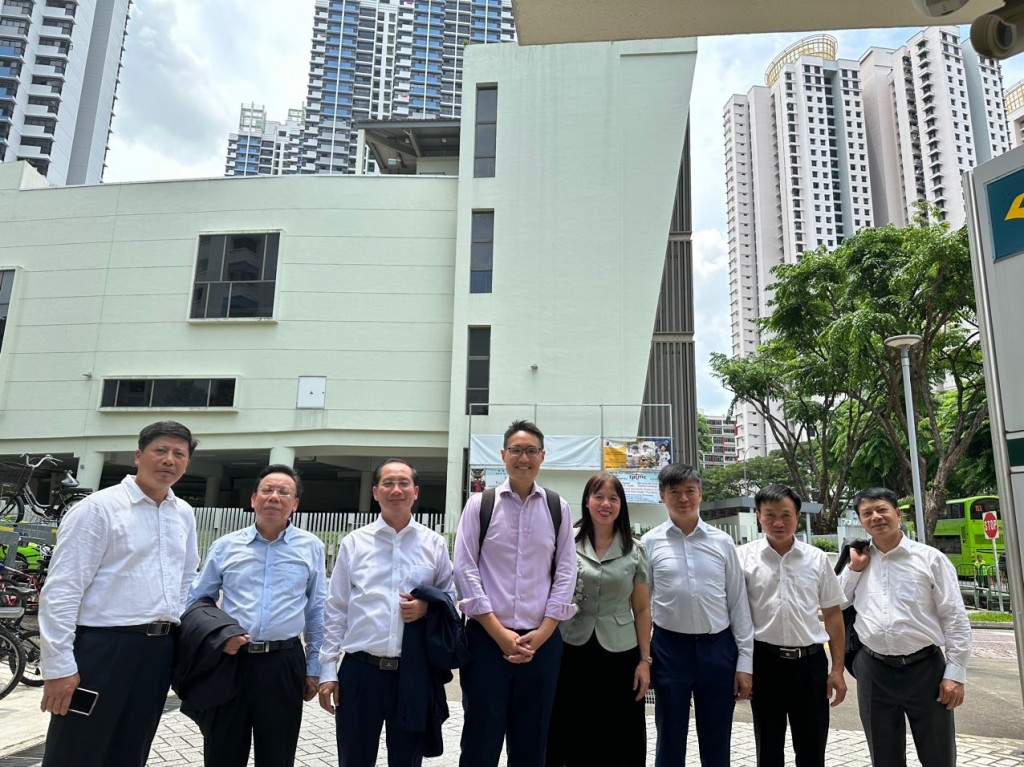To promote effective cooperation between the National Academy of Public Administration (NAPA) and the Chandler Institute of Governance (CIG), the delegation of the Ministry of Home Affairs (MoHA) and the National Academy of Public Administration (NAPA) led by Assoc.Prof.Dr. Nguyen Ba Chien, NAPA President, worked with CIG, Singapore, on August 22, 2023. Mr. Wu Wei Neng, Executive Director, Mr. Kenneth Sim, Deputy Executive Director, and CIG staff worked with the delegation.
Representing MoHA of Viet Nam was Mr. Nguyen Tien Dao, Permanent Deputy Secretary of the CPV Committee of MoHA. On the side of NAPA, there were leaders of the NAPA Branch Campus in Ho Chi Minh City, the Department of International Cooperation, the Department of Refresher Training Management, and the Institute of Administrative Studies.
At the meeting, NAPA President Nguyen Ba Chien highly appreciated the close and effective collaboration between CIG, MoHA, and NAPA. This collaboration has yielded tangible and meaningful results, as evidenced by the Modern and Effective National Governance Programme for Emerging Leaders (MENGPEL). After two cohorts, the programme received very positive feedback from participants, providing them with the opportunity to broaden their horizons, acquire new knowledge, and practice leadership skills, strategic management, analytical and system thinking skills, and problem-solving methods in a complex and ever-changing context. Participants gained practical experience in policy implementation at Vietnamese localities and in Singapore; they could also analyze, compare and apply their experiences to improve management and operation effectiveness. The practical and meaningful outcomes of the programme were recognized and highly appreciated by the Minister of Home Affairs of Viet Nam Pham Thi Thanh Tra, who also suggested both sides continue to promote the implementation of the program in the coming years. To further enhance the effectiveness of the programme, NAPA will collaborate with ministries, sectors and localities to proactively develop implementation plans that better meet the needs of ministries, sectors and localities.
The delegation visiting the Housing & Development Board at Toa Payoh
NAPA President Nguyen Ba Chien also highly appreciated the positive outcomes of other collaboration efforts between the two sides, such as cooperation in developing skills for building and using case studies in leadership and management training; joint organization of many international conferences and workshops; consulting activities for localities in building an effective public service and a dynamic and talented cadres and civil servants. He suggested that both sides continue to promote the achieved cooperation results to realize the goal of improving the quality of the leadership and management personnel, thereby substantially contributing to the process of public service reform in Viet Nam and the region.
At the meeting, Mr. Kenneth Sim, Deputy Executive Director of CIG and Dean of Chandler Academy of Governance, highly appreciated the close and effective collaboration between NAPA and CIG. He believed that such collaboration results are the outcome of commitment and efforts from both sides over the years. Mr. Kenneth Sim also highly appreciated the relevance and significance of the proposed collaboration areas, which demonstrates NAPA’s capacity and commitment to building, managing and developing international cooperative relationships. Affirming the importance of the proposals put forth by NAPA, based on available resources and the practical needs of both sides, they have agreed to focus on implementing the following collaboration programs:
(1) Continuing to cooperate in implementing MENGPEL. This involves constant innovation and refinement of the program content and implementation processes and the engagement of participants in the entire program process. This will further enhance the effectiveness and practical impact of the programme, aiming to establish it as one of the models of international cooperation in training, adhering to international standards and aligning with the practical Vietnamese context.
(2) Promoting cooperation in providing training programs based on the needs of localities in Viet Nam. Training activities should focus on comprehensive and systematic capacity development for both organizations and individuals. The emphasis is on ensuring the entire capacity building cycle, from identifying needs, designing and implementing programs to post-training consultation and support. In the near future, the two sides will focus on co-developing and co-implementing international training programs abroad or a combination of domestic and abroad settings. These programs will target provincial leaders and other senior public leaders and managers, meeting the requirements of the public service reform process in Viet Nam.
(3) Investigating the feasibility of conducting survey projects on administrative and public service reform capabilities in Viet Nam. This will serve as a basis to assess the current status of leadership and managerial capacity at all levels, thereby providing an overall view of the design and development of high-quality leadership and management training programs and actively facilitating the Vietnamese public service reform.
As part of the working program, the delegation members, accompanied by CIG leaders and officials, visited the Housing and Development Board (HDB) to gain insight into the process of social housing development in Singapore. They also explored HDB’s journey of working alongside the Government to provide Singaporeans with well-designed, affordable, sustainable and community-centric homes. The delegation also visited Toa Payoh, one of the Singapore’s oldest “Heartlands” housing estates, to observe and experience the actual implementation and application of community-centered housing development policies, as well as the multicultural policies in religion, language and education, and the people-centric public transport development policies in Singapore. This practical experience was also a part of MENGPEL (conducted by CIG in collaboration with NAPA under the leadership of MoHA).








